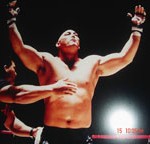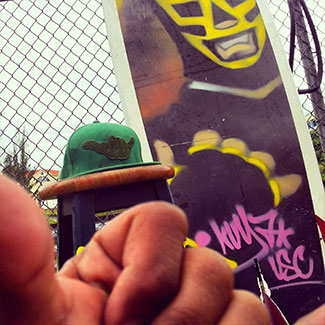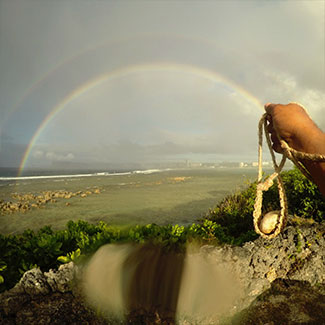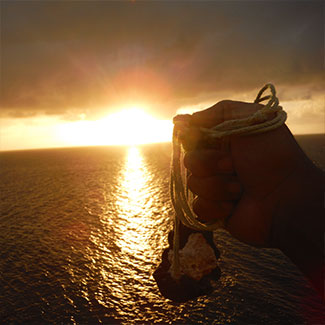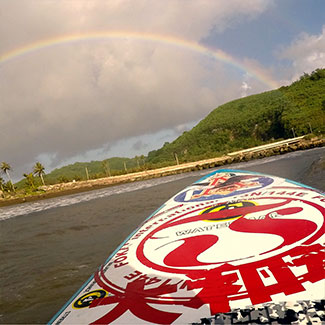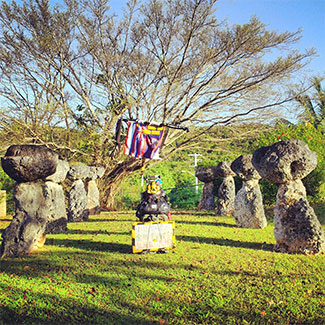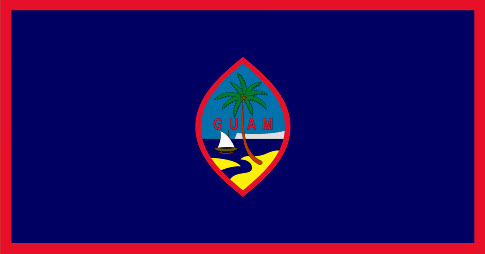Walk This Way:Enson’s Footsteps Across Japan
September 10, 2013 by admin
Filed under 1008, Familia, FokaiHawaii, FokaiJapan, FokaiWorldTour
via:Enson Inoue
Conditions for ENSON’s walk across Japan
After careful thought I’ve decided on strict conditions for my walk across the whole country of Japan. After all the walk is for the people in North Japan that are still struggling everyday, so I decided that I would use whatever I could in the walk to benefit the people.
First of all, there are 3 things that inspired this walk across Japan
1. The lack of funds the people have for everyday necessities.
2. The people of the world has forgotten the people of North Japan because it is no longer in the media.
3. Suicide is a big problem with the elderly that have been left homeless and feel they have no reason to continue living.
The way this walk will help these 3 points is:
For point number one, I am taking pledges to destinyforeverorders@gmail.com that will fund a big Xmas event up North on Xmas day, that ill provide the people with supplies such as, rice, water, pet foid, clothes, toiletries, beer, snacks, presents, and Xmas cakes.
For point number two, with my social media such as Facebook and various MMA sites, i will bring awareness to thousands of people that the people of North Japan are still struggling day by day.
For point number three, I’ve decided to add a strict rule that I can eat and drink only the food and water I can carry. The only exception is if someone gives us food or water as an offering. Also we have to find a place to sleep outdoors every night unless we are offered a place to sleep.
This will put me close to the situation they are currently in.
I will be low on supplies, having unstable sleeping quarters every night and will be depending on help from others for strength to continue.
By making this conditions to make this already incredible journey so much harder, I want to inspire them and give them hope and faith to go on.
This will cover approximately 2200 kilometers or about 1360 miles. The distance I got was for this trek is from a highway course and am aware that a walking course may be much longer and since it won’t cut through mountains it will be much tougher.
I know many of you think I’m crazy or feel that I may be taking on too much this time, and you maybe right. But this is what I believe, it will take to help these people and possibly save some lives! God has given me the opportunity to reach out to many on my social media and I believe it would be best used to help others than prosper financially myself. However, I will gain a lot of happiness through this grueling journey by accomplishing the happiness of giving, true happiness.
Please pledge what you can per mile and be a part of this journey. A penny a mile will obligate you to only $13 when the walk is done. $13 will buy water for a family for month or feed a family rice for 2 weeks. Also feel free to take you own pledges and join me on the walk for as far as you like. The cities I will be passing through is:
Sapporo
Misawa
Miyaki
Kamaishi
Rikuzen Takada
Kesenuma
Sendai
Fukushima
Koriyama
Tochigi
Iwatsuki
Ikebukuro
Yokohama
Shizuoka
Nagoya
Osaka
Okayama
Hiroshima
Fukuoka
If not, you can follow me on Facebook and experience this incredible journey with me.
Tentative start date is September 11th. 9-11.
May the victims in New York rest in peace.
There is no better way to die…
than in the mist of a battle…
fighting to the very end, like a Man.
Enson Inoue
EnsonInoue:TheForce is With Him
July 18, 2013 by admin
Filed under 1008, Familia, FokaiJapan, Special Forces
Enson Inoue’s New Fight: Helping the Displaced of Northern Japan
By Tommy Hackett on July 17, 2013
Enson Inoue is known for a fighting spirit which carried him in epic battles against the likes of Frank Shamrock, Randy Couture, and Igor Vovchanchyn during the heyday of Japanese MMA.
Born and raised in Hawaii, Inoue first came to Japan in his early 20’s, where he began an unlikely MMA career — initially, to challenge his own sense of fear. The Japanese accepted him as one of their own, dubbing him “Yamato Damashii,” or the spirit of traditional Japan. His ferocity and never-say-die attitude was said to be bringing back the samurai spirit that the Japanese themselves were losing.
But today, Enson Inoue is planning a new challenge: a pilgrimage across his adopted home, to raise money and awareness for those still suffering and displaced by the 2011 tsunami and nuclear disaster.
Beginning in September, Inoue will trek close to 1500 miles in honor of the displaced, including through the ravaged areas of Iwate Prefecture — staying wherever he may find shelter and only carrying his own food and water.
He’s asking fans to pledge support, accepting donations through his website which will be used for supplies to help the displaced.
“What we’ll be doing is not only raising money for the people up there, but also I want to make it so it inspires them too,” Inoue explains of the walk he will take with two longtime friends, Roman De La Cruz of Fokai Industries and K-1 veteran Pat Ayuyu.
“As far as food and water goes, we’re going to run out of supplies, yeah?” he adds, his Hawaii accent still rock-solid after almost two decades in Japan. “But these people don’t have work and don’t have a way to purchase what they want. That’s why I’m making that rule, that we only eat what we carry, to put us in the situation where we have to depend on people’s help too.”
“They’re in a situation (in Northern Japan) where they need to rely on other people,” he continues. “It’s not possible to make it all the way across Japan only carrying food and water, without help. We’re going to have to sleep outside every day. So it’s kind of like their situation, unstable. They’re in temporary housing and they don’t know how long they’re going to be there. They’re not confident they’ll always have a place to sleep. We might find a good place to sleep one night, and not find anywhere to sleep the next.”
“You’ve got to keep the hope. If you look at the resources, there’s really no way to make it. If you look at the people in temporary housing, it’s the same: some of them end up having to wait until hope comes. I hope it inspires them to continue on.”
In 2010 Inoue completed the Shikoku Pilgrimage, a walking tour of 88 Buddhist temples. After the 2011 disaster, he began setting aside time from his successful network of martial arts academies to help the disaffected. With the help of his friends and fans, Inoue has made more than 20 trips to bring supplies to the ravaged north from his home in Saitama.
He describes the lessons learned from his MMA career as serving him well in these experiences. He was a huge underdog when he handed Couture his first MMA loss, and refused to quit in a frightful beating at the hands of Igor Vovchanchyn – in a bout where he sustained a swollen brain and numerous other injuries.
“Discipline and perseverance,” he says. “The duration of the fight is different; even thinking of the hard training before the fights; this (trek) will be a bit longer. It’s a whole different thing, but it’s the same thing. To have to get up again every day, no matter how much pain you have. Pushing yourself to get through the mental anguish.”
But this time, the battle isn’t about testing his fighting spirit.
“It’s to inspire them to continue on,” Inoue says. “Second, the fans, I can inspire them to help. They don’t understand how dire the situation is. If people didn’t do these volunteer missions to help, a lot of people would be dead. The people up north still need help.”
“If you skip a couple of beers and pledge a penny per mile,” Inoue explains, “at the end of the journey, that $13 will buy water for a family for a month, or rice for a couple weeks. You can help people in ways that are life changing.”
Donations can be made through Enson Inoue’s website, DestinyForever.com.
Fokai Product Development: via Enson Inoue
September 7, 2012 by admin
Filed under Familia, FokaiJapan, Product Development, ProductDevelopment
Crossing paths with Enson Inoue for a stroll with Pedro and some real work in Fokai / Yamato Damashii Product Development.
Enter the Samurai!
Fokai JAPAN: What Is Fokai
May 26, 2012 by admin
Filed under FokaiJapan
Heres the new Fokai song. This is the 6th fokai song written and performed in Japan and its translation.
http://www.youtube.com/watch?v=Aaqcn2GpLSE&feature=youtu.be
FOKAI MUSIC(2012)
What we produce(Clothing) is what we are
Nothing different from the sun burning
Fokai is my life
Nobody knows what will happen
So why don’t we just try our best
Even if we all collapse we will still stand
That’s how Fokai gets strong
Born and grow to leave something in memory
Never quit when you decide to begin
There are times to laugh and cry
But only one life
Think positive and proceed
Dont lose your mind just Finish what you start
Never drop out, but will achieve
Fokai Familia will rise up together
Trial and error , be determined
If you don’t last 3 days your useless
Fight against softness
No need to talk but to show
Many things will happen beyond
So Why not try our best every time
Never quit when you decide to begin
There are times to laugh and cry
But only one life
Never drop out,but will stand it
That’s how Fokai will get strong
Born and grow to leave something in memory
Never quit when you decide to begin
There are times to laugh and cry
But only one life
We cannot go back
Don’t want to give up this thoughts
Even anxious comes in the way
Still we are standing and continuous
Made in Japan
Never to despise just save like money
Times caught in a hole and times of up and downs
But the goddess of victory will smile at Fokai
Whatever we draw in the beginning will it come true ?
No need to think too much
This is same as the Jah guide
No Regrets even a split second
Fokai Brand is since ever since
Many things will happen beyond
So Why not try our best every time
Never drop out, but will achieve
That’s how Fokai will get strong
Born and grow to leave something in memory
Never quit when you decide to begin
There are times to laugh and cry
But only one life
Why not try to live you life what you like the best
Is this your best , didn’t think so .
Feels strange this jam hypes me up
Watch us Fokai fan dem
We will promise this is just the beginning
Starting From
GUAM ,HAWAII , JAPAN , SAIPAN and to the world
We will head to the mountain peek
Many things will happen beyond
So Why not try our best every time
Never drop out, but will achieve
That’s how Fokai will get strong
Born and grow to leave something in memory
Never quit when you decide to begin
There are times to laugh and cry
But only one life
Even if we fall down to the beginning
Even if people think we are a fool
Even if we get old ages pass by
I will proceed this way all the way
GoodVibrations:FokaiJapan
May 22, 2012 by admin
Filed under Familia, FokaiJapan, FokaiMusic
NewFokaiSong and videoslideshow by FokaiFamilia Japan
FokaiJapan:RememberingMarch11
March 11, 2012 by admin
Filed under 1008, FokaiJapan
It’s been 366 days since last years fatal and fatelful March 11th tsunami. From the heart—prayers loss of the it’s victims and prayers for Japan’s Ressurection from this tragedy.
Let’s go Japan…YAMATO DAMASHII!
EnsonInoue:Then&Now
February 28, 2012 by admin
Filed under 1008, CelebrityFokai, Familia, FokaiJapan
FromValeTudo Japan to the H.O.H…Bruh!
FokaiFamilia:ToshikazuIsseno
July 14, 2011 by admin
Filed under Familia, FokaiJapan
A quick escape over the reef with our Chelu from Japan–Bond’s Securuty Founder ToshikazuIsseno
TheRealEnsonInoue
April 3, 2011 by admin
Filed under Familia, FokaiCombatUNit, FokaiJapan, Fury, Onra
We’ve hgeard alot about Enson INoue in the past fifteen years. from his rise in his career-shifting defeat of that-the-time UFC Champion Randy Cotoure in ValeTudo Japan to his neversay wars in PrideFighting Championships. From his incarceration for walking the green path to his return from retirement submission victory over Antz Nansen in Astra in Japan. Up close and personal Enson is truly a man of action who can keep you on your toes, knock you on your ass–but in the end can be there to pick you up when you should fall. Even when some give up on him he surrenders for no one. Follow him on FACEBOOK and see what risk hes taking and what hes doing in yet another display to a different side of the Japanese FightingSpirit.
For him Yamato Damashii is truly a way of life–Ladies and Gentlemen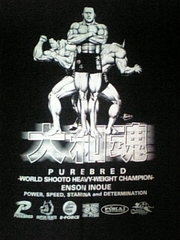 ..the Real Enson Inoue
..the Real Enson Inoue
TheYakuza:It’sAFamilyThing(sometimes)
March 21, 2011 by admin
Filed under FokaiJapan
Yakuza to the Rescue
NEW YORK –  Even Japan’s infamous mafia groups are helping out with the relief efforts and showing a strain of civic duty. Jake Adelstein reports on why the police don’t want you to know about it. Plus, more coverage of Japan’s crisis.
Even Japan’s infamous mafia groups are helping out with the relief efforts and showing a strain of civic duty. Jake Adelstein reports on why the police don’t want you to know about it. Plus, more coverage of Japan’s crisis.
The worst of times sometimes brings out the best in people, even in Japan’s “losers” a.k.a. the Japanese mafia, the yakuza. Hours after the first shock waves hit, two of the largest crime groups went into action, opening their offices to those stranded in Tokyo, and shipping food, water, and blankets to the devastated areas in two-ton trucks and whatever vehicles they could get moving. The day after the earthquake the Inagawa-kai (the third largest organized crime group in Japan which was founded in 1948) sent twenty-five four-ton trucks filled with paper diapers, instant ramen, batteries, flashlights, drinks, and the essentials of daily life to the Tohoku region. An executive in Sumiyoshi-kai, the second-largest crime group, even offered refuge to members of the foreign community—something unheard of in a still slightly xenophobic nation, especially amongst the right-wing yakuza. The Yamaguchi-gumi, Japan’s largest crime group, under the leadership of Tadashi Irie, has also opened its offices across the country to the public and been sending truckloads of supplies, but very quietly and without any fanfare.
Gallery: Yakuza’s Tattooed Mafiosos
The Inagawa-kai has been the most active because it has strong roots in the areas hit. It has several “blocks” or regional groups. Between midnight on March 12th and the early morning of March 13th, the Inagawa-kai Tokyo block carried 50 tons of supplies to Hitachinaka City Hall (Hitachinaka City, Ibaraki Prefecture) and dropped them off, careful not to mention their yakuza affiliation so that the donations weren’t rejected. This was the beginning of their humanitarian efforts. Supplies included cup ramen, bean sprouts, paper diapers, tea and drinking water. The drive from Tokyo took them twelve hours. They went through back roads to get there. The Kanagawa Block of the Inagawa-kai, has sent 70 trucks to the Ibaraki and Fukushima areas to drop off supplies in areas with high radiations levels. They didn’t keep track of how many tons of supplies they moved. The Inagawa-kai as a whole has moved over 100 tons of supplies to the Tohoku region. They have been going into radiated areas without any protection or potassium iodide.
The Yamaguchi-gumi member I spoke with said simply, “Please don’t say any more than we are doing our best to help. Right now, no one wants to be associated with us and we’d hate to have our donations rejected out of hand.”
To those not familiar with the yakuza, it may come as a shock to hear of their philanthropy, but this is not the first time that they have displayed a humanitarian impulse. In 1995, after the Kobe earthquake, the Yamaguchi-gumi was one of the most responsive forces on the ground, quickly getting supplies to the affected areas and distributing them to the local people. Admittedly, much of those supplies were paid with by money from years of shaking down the people in the area, and they were certainly not unaware of the public relations factor—but no one can deny that they were helpful when people needed aid—as they are this time as well.
It may seem puzzling that the yakuza, which are organized crime groups, deriving their principal revenue streams from illegal activities, such as collecting protection money, blackmail, extortion, and fraud would have any civic nature at all. However, in Japan since the post-war period they have always played a role in keeping the peace. According to Robert Whiting’s Tokyo Underworld and Tim Weiner’s Legacy of Ashes, the US government even bought the services of one infamous yakuza fixer, Yoshio Kodama, to keep Japan from going communist and maintain order. Kodama would later put up the funding to create the Liberal Democrat Party of Japan that ruled the country for over fifty years. When President Obama visited Japan last year, the police contacted the heads of all Tokyo yakuza groups and asked them to behave themselves and make sure there were no problems.
As one members said, “There are no yakuza or katagi (ordinary citizens) or gaijin (foreigners) in Japan right now. We are all Japanese. We all need to help each other.”
But let’s be clear, the yakuza are criminals, albeit with self-imposed restraints, and in their way may actually keep street crime (muggings, purse-snatching, theft) down. Many Japanese still admire or tolerate them. In fact, a Nara Police Prefectural police study found that amongst adults under 40, one in ten felt that the yakuza should be allowed to exist or were “a necessary evil.”
There is an unwritten agreement amongst the police and the yakuza groups that is acceptable for them to perform volunteer activities during a crisis but not to seek publicity for it. Before the crisis the police were cracking down severely on the yakuza and any activity placing them in a heroic light might make the police look foolish. So they have been very quietly doing their part. It is not that the yakuza are not PR savvy, as is evidenced by their careful control and limited appearances in six fan magazines (three monthly, three weekly) that write of their exploits; it is that right now they care more about getting the job done than getting credit for it. As one members said, “There are no yakuza or katagi (ordinary citizens) or gaijin (foreigners) in Japan right now. We are all Japanese. We all need to help each other.”
A bit of background: Japan has 80,000 members belonging to these criminal organizations, which the police label shiteiboryokudan or literally “designated violent groups”; membership is not illegal although the police regulate their activities, much the way the SEC regulates Goldman Sachs. Their income is largely derived from protection money, security services, financial fraud, stock manipulations, gambling, blackmail, prostitution, and loan sharking. They call themselves “yakuza.” The word comes from a losing hand in traditional Japanese gambling: 8 (ya) 9 (ku) 3(za) which adds up to 20, and is a useless hand. Thus to be a yakuza is to be “a loser.” It’s a self-effacing term. They yakuza don’t call themselves “violent groups.” They exist out in the open; they have offices, business cards, fan magazines. The three major groups, the
Yamaguchi-gumi (40,000 members), the Sumiyoshi-kai (12,000) and the Inagawa-kai (10,000) all insist they are chivalrous groups, like the Rotary Club, that they are ninkyo-dantai.
Ninkyo(do), according to yakuza historical scholars is a philosophy that values humanity, justice, and duty and that forbids one from watching others suffer or be troubled without doing anything about it. Believers of “the way” are expected to put their own lives on the line and sacrifice themselves to help the weak and the troubled. The yakuza often simplify it as “to help the weak and fight the strong,” in theory. In practice, the film director Itami Juzo, who was attacked by members of the Yamaguchi-gumi Goto-gumi because of his films depicting them harshly, said “the yakuza are all about exploiting the weak and disadvantaged in society, and run away from anyone strong enough to stand up to them and their exploitive extortion.” He was primarily correct, I think. However, sometimes, like today in Japan, they live up to their original values.
Of course, most yakuza are just tribal sociopaths who merely pay lip service to the words. But in times like this every helping hand is welcome, and maybe, maybe for a few weeks, both the police and the yakuza can declare a peace treaty and work together to save lives and ensure the safety of the people of Japan. To some extent, the police have even given their tacit support to the yakuza aid efforts. That’s the spirit of ninkyodo. It’s also the spirit of many of the Japanese people. It is why I have no doubts that Japan will weather this crisis and come back stronger than ever.
Naoya Kaneko, the deceased Sumiyoshi-kai boss who was a friend and a source, once said, “In times of crisis, you learn the measure of a man.” To understand the real meaning of that you have to understand how the generally male-dominated and sexist yakuza define “a man.” The core of that is giri, a word that can be translated many different ways but which I interpret to mean: reciprocity. Today, the Japanese people and even the yakuza are measuring up very well to that standard of behavior.
Jake Adelstein was a reporter for the Yomiuri Shinbun, Japan’s largest newspaper, from 1993 to 2005. From 2006 to 2007 he was the chief investigator for a U.S. State Department-sponsored study of human trafficking in Japan. Considered one of the foremost experts on organized crime in Japan, he works as a writer and consultant in Japan and the United States. He is also the public relations director for the Washington, D.C.-based Polaris Project Japan, which combats human trafficking and the exploitation of women and children in the sex trade. He is the author of Tokyo Vice: An American Reporter on the Police Beat in Japan (Vintange).
Like The Daily Beast on Facebook and follow us on Twitter for updates all day long.
For inquiries, please contact The Daily Beast at editorial@thedailybeast.com.


